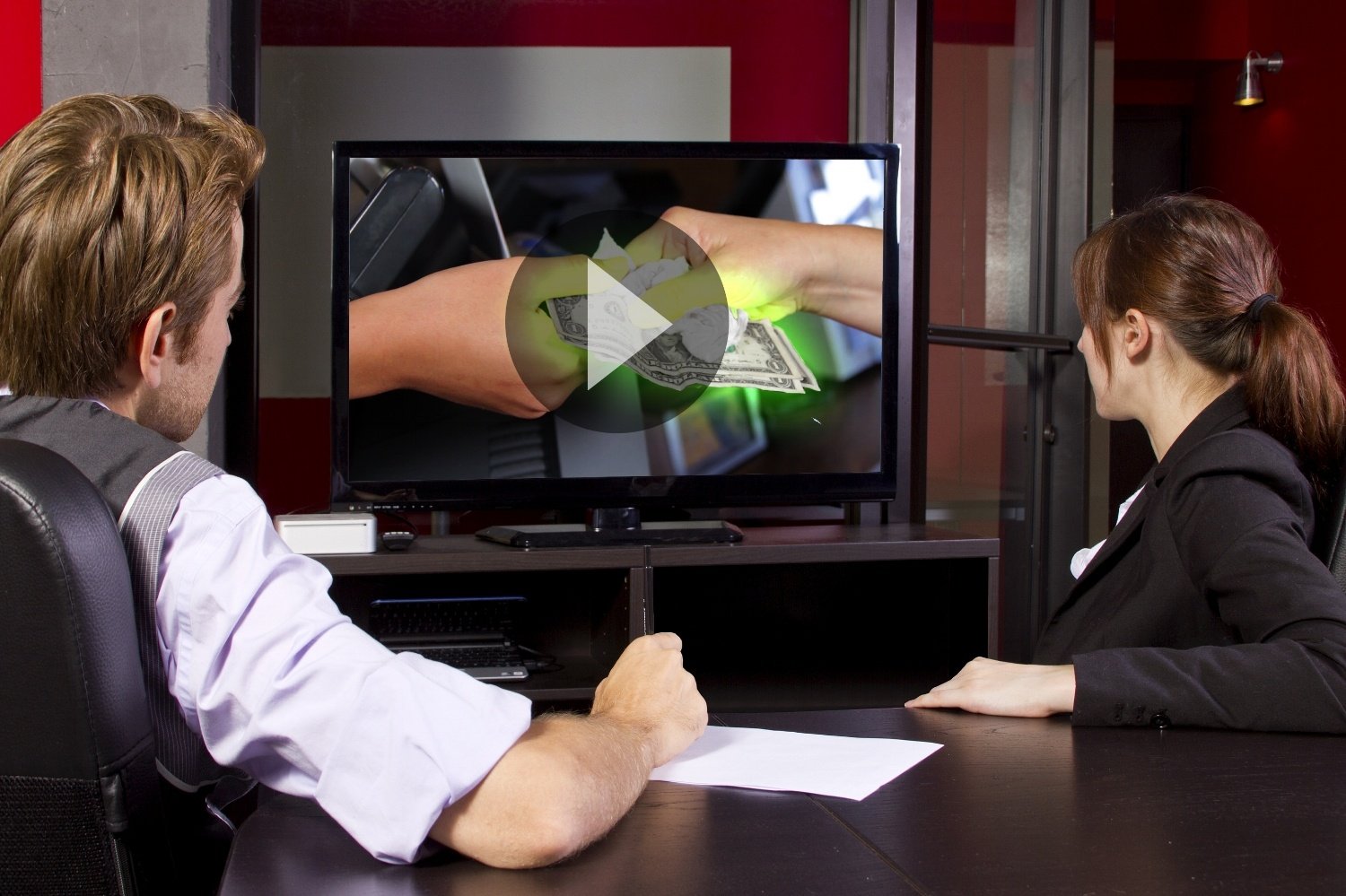Video Interview Backgrounds & Backdrops: Choosing the Best Location
Finding the best video interview background is one of the most important parts of the video production process. There are a lot of different elements...

The word "interview" often brings to mind images of a TV news anchor asking tough, pointed questions as he tries to get to the bottom of an issue. But when you're conducting an interview for a company marketing video, the interview process is a little bit different.
Anyone can conduct an interview for a story, but when producing a marketing video for an organization (internal or external) that has key messages to convey, it's important that the producer has a clear angle for the piece so they can make the most out of each interview. Of course, it's important to make sure the subject looks good on camera, but ensuring the questions connect the responses to the key messages ensures the interview subject looks good in more ways than one. Here are a few tips on how to position yourself and the interviewee for success when conducting a video interview.
Collecting background information, or conducting a pre-interview with the interview subject is invaluable. This helps create a connection that can put the interviewee at ease and disarm them before the real questions begin to fly! Information that is helpful to have before the interview are things like:
Having background information makes it easy to connect with the interview subject, which often makes them more comfortable when it comes to answering questions in front of a camera. Also, make yourself available prior to the interview in case the interviewee would like to ask any questions about the interview process. It's all about making sure the interview subject feels as comfortable as possible.
Always try to script open-ended questions, with a focus on "what" and "how" questions. What does your job entail? How long have you been connected with this particular organization? What inspired you to get involved with this project? How would you describe your connection this organization? And most importantly, remember to ask questions that will draw emotional responses - How did that make you feel? How did that result differ from what you thought it would be?
When preparing questions, envision the answers you may hear. Do these anticipated sound bites align with the goals of the interview in terms of messaging or storytelling? If not, you may want to re-phrase your questions.
It’s easiest to conduct interviews in a controlled setting (preferably with a nice video interview background) where you can eliminate all audible and visual distractions. Turn off all cell phones and unused electronics and put any office phones on do-not-disturb mode. There’s nothing worse for a producer than being in the middle of the perfect sound bite and having a ringtone go off. Additionally, if your video calls for a quiet background, avoid noisy locations where you can hear buses going by or airplanes flying overhead. Visually, pay close attention to the background, shadows on the face of your subject, or unusual lighting. Remember, when the distractions take away from the message, your audience may begin to lose interest.
Try to keep the number of extra people in the room to a minimum, even if they aren't going to be talking. You'll also find your interview subject will appreciate a smaller in-studio "audience." This will also help to eliminate whispering and any other extraneous noise caused by people rustling around.
It's important to get the interview subject talking from the get-go! It's not uncommon for people to become a little shy once the cameras start rolling, even in a one-on-one interview. So before you begin the shoot, start the conversation with "ice breaker" questions and give affirming feedback as you listen to what they have to say. If possible, have the videographer start to start recording without making it a big deal - just have them press record during the idle conversation.
You'll want to get the interviewee to begin his or her answers by restating the question that you asked. More often than not, audio from the interviewer's questions will be edited out before the video is actually put together. A great sound bite can be unusable if it doesn't have context. For example, if the question is "tell me about the day you heard the news", the response should be "the day I heard the news...." Another technique is to remind the interview subject that your question will not be used, so feel free to provide context. By doing this, the editing process can be much smoother and your finished piece will feel connected.
Here are a few tips to remove as much stress as possible from the interview:
Let them know they don’t have to get the answer right the first time. In fact, it always helps to let the interview subject know that they can answer the question again if they'd like and that the interview will be edited. As long as you’re not conducting a live interview, there is usually room for "do-overs".
Be open to asking a lot of follow-up questions. Usually the most genuine answers come from off-the-cuff inquiries, because people's answers tend to reflect the way in which the question was asked. If you ask a lot of overly-prepared questions, you may get a lot of overly-prepared answers.
If you're not getting the answer you'd like, don’t be afraid to ask the same question again, just stated in a different way. You might ask, “Tell me why you choose to support this effort.” Depending on their answer, you may want to follow up with, “Wow, it sounds like you have a real passion for the work this group doing" – which is more or less the same prompt, just framed in a way that may get the interviewee to think differently about how they answer it. Often times the interview subject will begin answer the question all over again, but the result is a much more emotional and often times a more inspiring or passionate response.
When asking follow-up questions, be sure to avoid yes or no questions. This typically breaks the flow of the natural conversation you're trying to create as an interviewer, and can lead to an awkward transition to a new topic.
Before the interview is over, make sure you ask the subject if there is anything that you may not have covered. Just because you are familiar with the organization doesn't mean you know everything there is to know, so defer to your interviewee who lives and breathes the subject matter day in and day out.
Ask them if there's anything else they'd like to talk about, or if there is a question they hoped you would ask but didn't. When people hear they'll be interviewed, they start prepping their answers mentally – and you might not be able to shake all of them loose with your own questions.
Remember, video production isn't the same as live television! You have the ability to ask questions several times until you get the answer you most desire. So be thorough, and don't stop until you have exactly what you're looking for.

Finding the best video interview background is one of the most important parts of the video production process. There are a lot of different elements...

Whether you call it an "about us" video, a "culture" video, or even an "intro" video, the goal is the same — tell your story. In fact, an "about us"...

The corporate training video. It just sounds painfully boring, doesn’t it? And let’s be honest, if you’ve been forced to watch one of these...